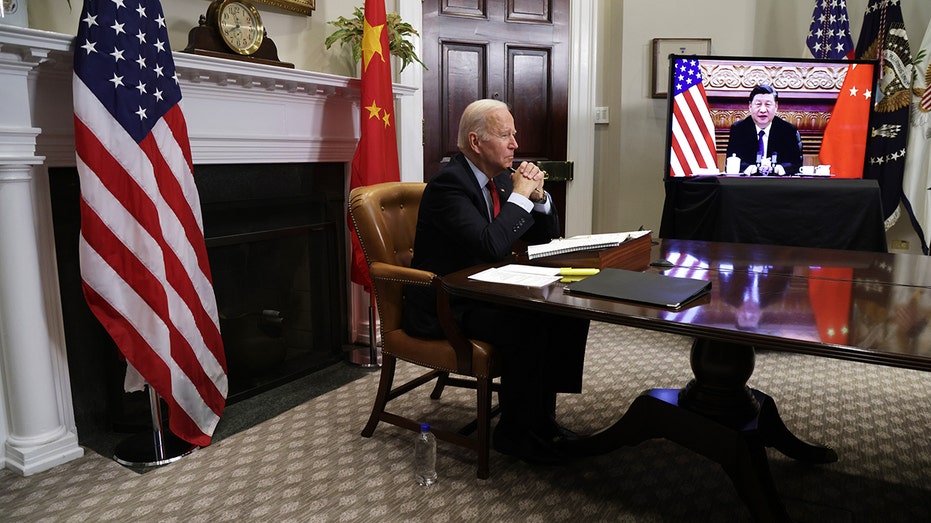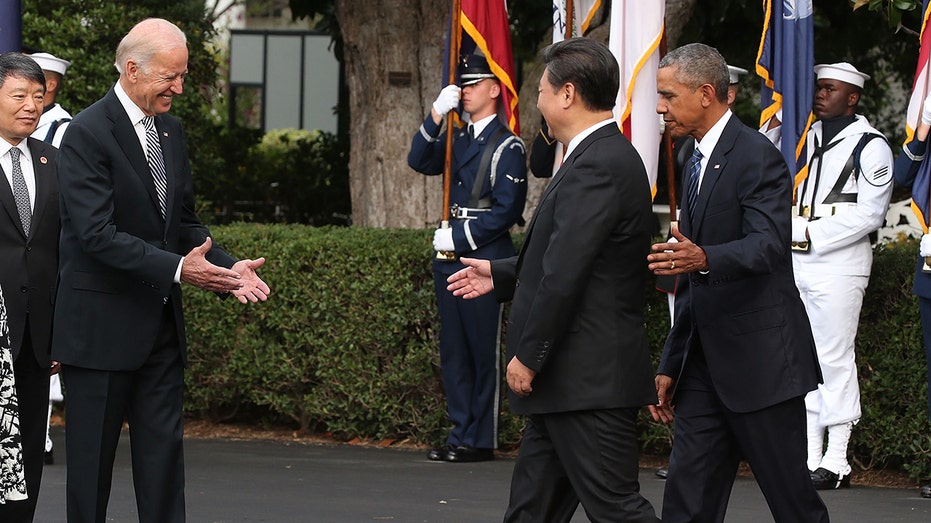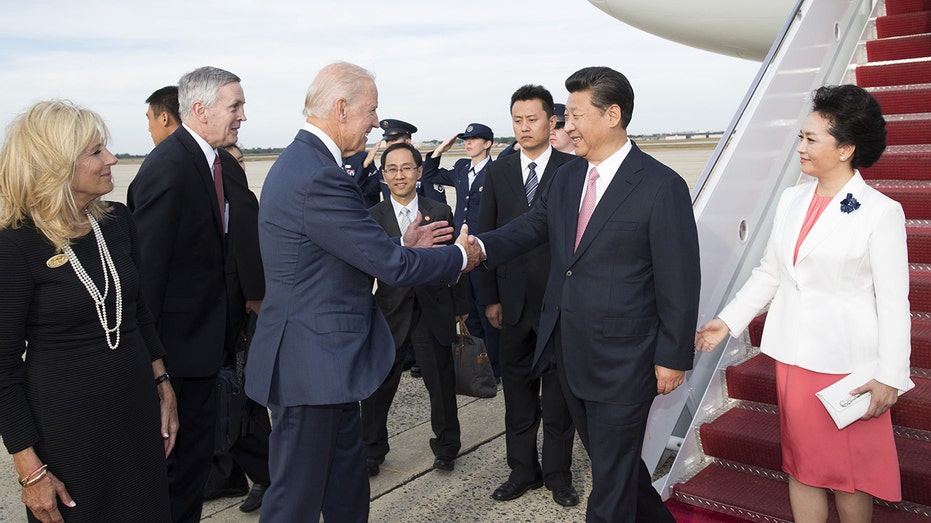US-China trade tensions rise following Biden-Xi summit
Biden, Xi making it clear they're not friends, CEO says
Fox Business Flash top headlines for November 29
Check out what's clicking on FoxBusiness.com.
A new cold war appears to be brewing as the U.S. places over a dozen Chinese companies on its trading blacklist, all while China slows its progress on purchasing $200 billion worth of U.S. goods by the end of the year.
This comes less than two weeks following President Biden and Chinese President Xi Jinping’s virtual summit on Nov. 15.
"There's a big ‘Make China Great Again’ movement in China," Andy Puzder, the former CEO of CKE restaurants and labor secretary nominee under President Trump, told FOX Business. "They're making it very clear that they are not our friends. They're at best our competitor and at worst, an enemy."
CHINESE PHOTOGRAPHER APOLOGIZES UNDER STATE MEDIA CRITICISM, AFTER DIOR PULLS IMAGE

U.S. President Biden participates in a virtual meeting with Chinese President Xi Jinping at the Roosevelt Room of the White House on Nov. 15, 2021, in Washington, D.C. (Photo by Alex Wong/Getty Images / Getty Images)
Biden and Xi have spoken three times since Biden took office, with the 46th president signaling that he will maintain the status quo by continuing tariffs and sanctions put in place by Trump.
The White House also indicated that trade talks would address the Phase One Trade deal — which China is only on track to deliver roughly 62% of the purchases promised by the end of 2021.
"There were no agreements proposed during that discussion, nor was there any follow-up during that discussion," said Max Baucus, the former U.S. ambassador to China under President Obama. "Frankly, actions speak louder than words."
Biden and Xi released individual statements following the summit in nonadherence to the protocol of a joint statement indicating good faith.
Xi struck an old tone in his solo statement, saying, "The consequences of the cold war are not far away."
"I think President Xi is correct that if the leaders don't talk to each other, they start undertaking some actions that show that by not working together that we are moving more toward a cold war," Baucus told FOX Business.
Negotiations with China are now under a renewed spotlight as the U.S. navigates the supply chain crisis and recovering the American economy that shrunk by an annual rate of 19.2% after the COVID-19 pandemic broke out.

Vice President Biden reaches to shake hands with Chinese president Xi Jinping (center), as former President Obama stands nearby during arrival ceremony at the White House on Sept. 25, 2015. (Mark Wilson/Getty Images / Getty Images)
Earlier this month, more than two dozen American business groups sent a letter to the White House pressuring Biden to ease tariffs and sanctions, saying, "These costs, compounded by other inflationary pressures, impose a significant burden on American businesses, farmers and families trying to recover from the effects of the pandemic."
"I think the biggest issue is that our business leaders, finance leaders, CEOs have a totally different view of China than our national security leaders do," said Jonathan Ward, author of "China’s Vision of Victory." "They're busy building businesses, they're investing in China, doing all of this, even as our military leaders are watching China's massive military buildup in the Pacific."
CLICK HERE TO READ MORE ON FOX BUSINESS

Chinese President Xi Jinping, second right, and his wife, Peng Liyuan, first right, are welcomed by Vice President Biden, third left, and his wife, first left, at Andrews Air Force Base in Washington, D.C., on Sept. 24, 2015. (Xinhua/Huang Jingwen via Getty Images / Getty Images)
It’s now up to Biden to strike a balance between aiding American businesses and holding China accountable for human rights abuses and intellectual property theft.
"Why would we reward China for meeting two-thirds or 62% of its obligation under phase one of this trade agreement?" said Puzder. "This is not sensible, strategic negotiating, but this is what politicians do to try and win the next election. It's not what leaders to try and solve problems."
While bipartisanship has been alive and well on myriad policies ranging from trade to national security, the length to which global leaders should put China on notice is up for debate.
"We just have to keep raising the issue over and over again and look for leverage. We don't have leverage. We have to try to find it," said Baucus.
CLICK HERE TO GET FOX BUSINESS ON THE GO
However, many experts believe that China will remain unaffected by new sanctions or tariffs.
"China is making their own rules," Ward told FOX Business. "We simply have to beat them."





















